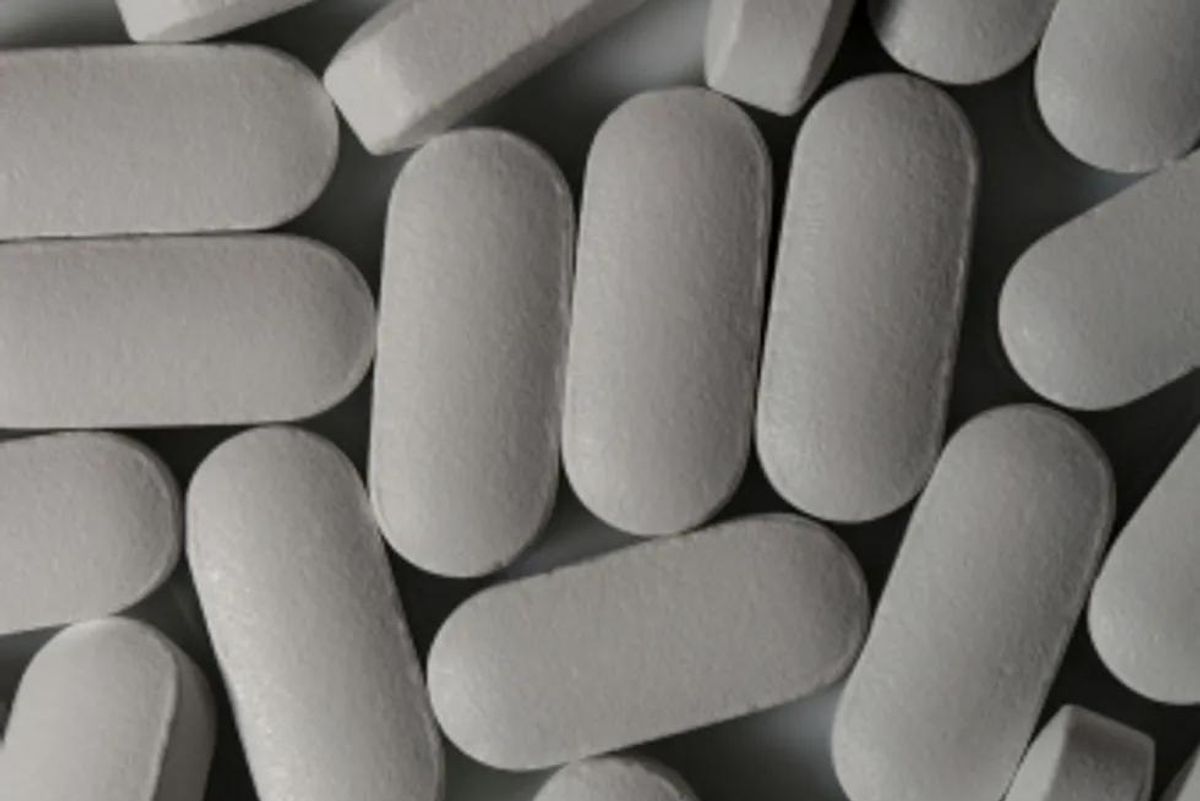This article has been archived. We will no longer be updating it. For our most up-to-date information, please visit our healthy aging information here.
Midlife is inevitably a time of changes. New words and conditions take root, like bone density and osteoporosis, muscle mass and sarcopenia, aches and arthritis, hot flashes and menopause.
Emerging health issues and concerns might make us feel a bit more vulnerable than ever before.
That's why I think being proactive is so important. Take a look at your everyday habits. Are you eating right? Getting the exercise you need? Making sure your sleep is not only enough but of high quality? Keeping your stress levels under control?
Are you supplementing your diet with the necessary vitamins and minerals to keep pace with your changing health?
I recently spoke with physician, author and broadcaster Dr. Ronald Hoffman. What I like about what he does is that he is a classically trained physician who studied internal medicine but also embraces complementary and alternative medicine.
I asked Dr. Hoffman for his opinion on aging. No, not whether or not to dye our gray hair or embrace it, but what he suggests as supplements for midlife women. Yes, I know there's recently been quite a lot of controversy on the subject of vitamins and supplements, but it's important not to turn our backs completely on supplementing our diets with certain nutrients, which we may be deficient in and may benefit us as we age.
Below, three key supplements you might want to consider:
Although this vitamin can be found in small amounts in some foods (among them fatty fish such as sardines, tuna, mackerel and herring) and is added to dairy products, juices and cereals (marked as "fortified with vitamin D"), many of us are deficient in this vitamin. Most of what the body gets is acquired through exposure to sunlight, and many people are not getting enough.
Some studies, says Hoffman, suggest that certain levels of this vitamin are needed for some osteoporosis medications to work effectively. Although individual needs vary, Hoffman recommends a dose of approximately 2,000 milligrams daily. Since there are different forms of the vitamin, he says, "Make sure it's vitamin D3."
About vitamin D: It's required for the regulation of calcium and phosphorus found in the body and plays an important role in preserving proper bone structure. People who don't get enough sun are at risk of deficiency. Especially at risk are older people, who have fewer "receptors" in their skin that convert sunlight to vitamin D and may not get it in their diets. And aging kidneys may not be as efficient in converting dietary vitamin D to a useful form.
Considered to be essential fatty acids, our bodies need omega-3 fatty acids, which are not made in the body, in order to work normally.
The two crucial omega-3s, EPA and DHA, are mainly found in fish. "Fish oil is beneficial in so many ways, but the vast majority of women are probably not eating enough fish," Hoffman says. For supplements, he suggests avoiding the "super bargain brands" and instead looking for ones that are moderate to high-priced, because they're more likely to have more of the beneficial active ingredients EPA and DHA.
About omega-3s: Omega-3s are thought to help reduce inflammation throughout the body. And a small pilot study found that together with vitamin D3, omega-3s might help the immune system clear the brain of amyloid plaque, which is associated with Alzheimer's disease. Talk to your doctor if you take anticoagulant drugs, because these supplements may cause the blood to thin and cause excess bleeding.
Calcium
The recent warnings about the association between calcium supplements and increased risk of heart attacks and death from cardiovascular disease have left many women confused. "I would not abandon calcium," says Hoffman. He suggests shooting for a total of no more than 1,500 milligrams of calcium each day—and that total includes what you get in your diet and in your supplement. If your diet provides less than 1,500 milligrams of calcium each day, he suggests supplementing with calcium. To figure out approximately what you need to supplement with, Hoffman advises keeping a diet diary for about a week, to see how much calcium you are ingesting. Calcium citrate, he says, is better absorbed than is calcium carbonate, and dairy helps to facilitate absorption.
About calcium: As the most abundant mineral in the body, some things calcium is required for are strong bones and teeth, muscle function, nerve transmission and hormonal secretion. Most of the body's calcium is stored in the bones and teeth, where it supports their structure. While the bone is constantly being remodeled, calcium is being reabsorbed and deposited into the new bone. But age changes that balance of reabsorption and depositing; that's when bone loss take place.
What else can you do to stay proactive?
If you're worried about:
Macular degeneration
Consider: lutein, zeaxanthin, zinc, selenium and DHA (from fish oil)
Cardiac and immune function
Consider: olive leaf extract
Heart disease and cancer
Consider: aged garlic extract
Consider: fish oil, vitamin D, magnesium and changing the sodium-to-potassium ratio in your diet
Getting adequate sleep
Consider: melatonin
You Might Also Want to Read:
How to Read a Supplement Label
Natural Approaches for Easing Anxiety







